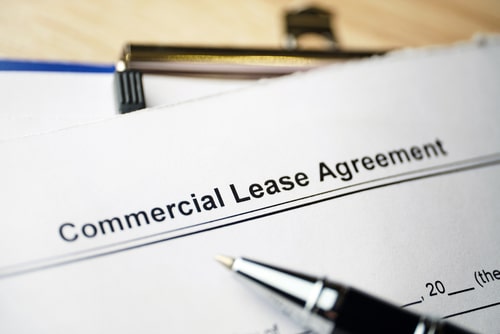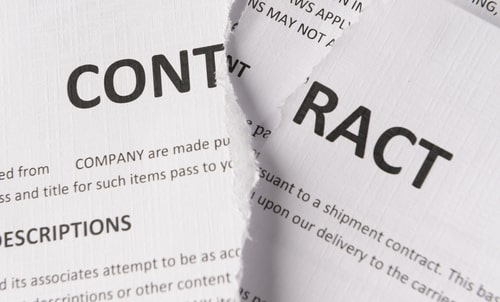Contact Our Firm
The use of the Internet or this form for communication with the firm or any individual member of the firm does not establish an attorney-client relationship. Confidential or time-sensitive information should not be sent through this form.
I have read and understand the Disclaimer and Privacy Policy.

Recent Blog Posts
What Key Legal Templates Should Your Florida Business Have in Place?
 When a company opens its doors for business, there are a multitude of issues that need to be addressed. One of the most important issues that need to be addressed is the need for the right legal templates in order to establish clear agreements, protect the company’s rights, and ensure compliance with relevant laws and regulations. These templates serve as important legal documents that outline the rights and obligations of the parties involved.
When a company opens its doors for business, there are a multitude of issues that need to be addressed. One of the most important issues that need to be addressed is the need for the right legal templates in order to establish clear agreements, protect the company’s rights, and ensure compliance with relevant laws and regulations. These templates serve as important legal documents that outline the rights and obligations of the parties involved.
In order to ensure your company is protected, it is recommended that you work with a qualified Fort Lauderdale business attorney when drafting these important document templates. The following is a brief overview of some of the most common templates used by businesses.
Partnership Agreement/Operating Agreement
For businesses with multiple owners or partners, a partnership agreement (for partnerships) or operating agreement (for limited liability companies) is one of utmost importance. These agreements outline the rights, responsibilities, profit-sharing arrangements, decision-making processes, and procedures for resolving disputes among the owners.
Red Flags to Watch for When Signing a Commercial Lease
 Part of owning a business often involves entering into a commercial lease for the brick-and-mortar location of the company. However, when signing a commercial lease, it is important to pay close attention to the details and be on the lookout for any red flags that could result in legal and/or financial issues down the road. The following are some of those warning signs to watch for. To ensure you are fully protected, it is in every business owner’s best interest to consult with a Florida commercial real estate attorney before entering into any legal agreement.
Part of owning a business often involves entering into a commercial lease for the brick-and-mortar location of the company. However, when signing a commercial lease, it is important to pay close attention to the details and be on the lookout for any red flags that could result in legal and/or financial issues down the road. The following are some of those warning signs to watch for. To ensure you are fully protected, it is in every business owner’s best interest to consult with a Florida commercial real estate attorney before entering into any legal agreement.
Ambiguous or Vague Language
Be wary of lease agreements that contain ambiguous or vague language. Clarity is essential when it comes to defining the terms, responsibilities, and obligations of both parties involved. If any provisions are unclear, your attorney can insist that the property owner provide written clarification.
Reasons Why You Should Consult with a Florida Real Estate Attorney
 A real estate attorney plays a crucial role in various aspects of property transactions and disputes. Whether you're buying, selling, or dealing with complex legal matters related to real estate, having a knowledgeable attorney by your side can be invaluable. The following are some of the most common reasons why clients contact The Elliot Legal Group, P.A. for their real estate legal needs.
A real estate attorney plays a crucial role in various aspects of property transactions and disputes. Whether you're buying, selling, or dealing with complex legal matters related to real estate, having a knowledgeable attorney by your side can be invaluable. The following are some of the most common reasons why clients contact The Elliot Legal Group, P.A. for their real estate legal needs.
Legal Expertise
Florida real estate law is intricate and can be challenging to navigate without proper knowledge. A seasoned real estate attorney has a deep understanding of the legal complexities associated with property transactions. They can provide expert advice, review contracts, and ensure all legal requirements are met.
Contract Review
Buying or selling a property typically involves a multitude of contracts and legal documents. A real estate attorney can carefully review these documents, including purchase agreements, lease agreements, financing agreements, and closing documents, to ensure your rights and interests are protected. They can identify potential issues or unfavorable terms and negotiate on your behalf.
Common Reasons for Business Partnership Disputes
 Business partnership disputes can arise from various factors, leading to conflicts that can jeopardize the success and stability of a company. Understanding the common causes of these disputes is crucial for partners to identify potential issues and take preventive measures. The following are some of the most prevalent causes of business partnership disputes. For more detailed information regarding your circumstances, contact The Elliot Legal Group, P.A..
Business partnership disputes can arise from various factors, leading to conflicts that can jeopardize the success and stability of a company. Understanding the common causes of these disputes is crucial for partners to identify potential issues and take preventive measures. The following are some of the most prevalent causes of business partnership disputes. For more detailed information regarding your circumstances, contact The Elliot Legal Group, P.A..
Misaligned Expectations
Partnerships can run into trouble when there are conflicting expectations regarding the company's vision, goals, and individual roles and responsibilities. Differences in work ethic, commitment, and long-term objectives can create tension and disputes among partners.
Financial Matters
Disputes over financial matters are a common cause of partnership conflicts. Issues such as unequal financial contributions, profit distribution, compensation, and management of company funds can lead to disagreements and mistrust among partners.
Why Do I Need a Florida Business Attorney for My Small Business?
 Many people starting out small businesses often assume that because their business is small, they do not need a business attorney. A business attorney is an essential component of any company's success, no matter what the size. There are several reasons why a company needs a business attorney, ranging from regulatory compliance to contract negotiations to dispute resolution. This article will explore some of the main reasons why a business attorney is vital for any company.
Many people starting out small businesses often assume that because their business is small, they do not need a business attorney. A business attorney is an essential component of any company's success, no matter what the size. There are several reasons why a company needs a business attorney, ranging from regulatory compliance to contract negotiations to dispute resolution. This article will explore some of the main reasons why a business attorney is vital for any company.
Regulatory Compliance
First and foremost, a business attorney is essential for regulatory compliance. Businesses are subject to a vast array of federal, state, and local laws and regulations. These laws cover everything from employment practices to environmental standards to tax requirements. A business attorney can help ensure that a company is in compliance with all applicable laws and regulations, reducing the risk of costly fines and legal action.
What Is Falsified Accounting in a Business?
 When you enter into a business with partners, there is an implied trust that each one involved in the company will operate with honesty and integrity. Unfortunately, that is not always the case and there are situations where a partner will engage in falsified accounting.
When you enter into a business with partners, there is an implied trust that each one involved in the company will operate with honesty and integrity. Unfortunately, that is not always the case and there are situations where a partner will engage in falsified accounting.
Falsified accounting, also known as creative accounting or accounting fraud, refers to the deliberate manipulation or misrepresentation of financial information to make a company's financial performance appear better than it actually is. The practice is unethical and illegal and has resulted in severe consequences for the company and any investors.
What Are Some Examples of Falsified Accounting?
One of the most common ways that companies engage in falsified accounting is by inflating their revenues or understating their expenses. For example, a company might record revenue from a sale that has not yet been completed or inflate the value of its inventory to make its financial statements look more robust. On the other hand, a company might understate its expenses by failing to record all of its liabilities, such as unpaid bills or accrued wages.
Dealing with Breach of Contract Issues
 One of the most common legal tools that businesses use is contracts. A contract is a legally binding agreement that can be made between the company’s partners, between the company and employees, the company and clients, and the company and suppliers. If one party fails to fulfill its obligations as stipulated in the contract, this is referred to as a breach of contract. A breach of contract can occur if one party fails to pay for services or goods, failed to meet a deadline, or delivers substandard work. A breach of contract can cause significant financial loss for a company and often leads to lawsuits.
One of the most common legal tools that businesses use is contracts. A contract is a legally binding agreement that can be made between the company’s partners, between the company and employees, the company and clients, and the company and suppliers. If one party fails to fulfill its obligations as stipulated in the contract, this is referred to as a breach of contract. A breach of contract can occur if one party fails to pay for services or goods, failed to meet a deadline, or delivers substandard work. A breach of contract can cause significant financial loss for a company and often leads to lawsuits.
Types of Contract Breaches
There are two types of breaches of contract: material and immaterial. A material breach is a significant violation of the terms of the contract and one that goes to its core. This can include failing to deliver goods or services in their entirety or delivering goods or services that are significantly different from what was agreed upon.
Can a Florida HOA Foreclose on a Home For Unpaid Fees?
 Many Florida homeowners live in residences that have oversight by homeowner associations (HOA). These organizations create and enforce rules that all the residents are required to follow, as well as oversee the maintenance and repair of all common areas of the community. Incurred expenses are paid through fees residents are required to pay. Under Florida law, if a resident fails or refuses to pay these fees, the HOA has the power to foreclose on the resident’s property – even if they are current in their mortgage or own their home outright.
Many Florida homeowners live in residences that have oversight by homeowner associations (HOA). These organizations create and enforce rules that all the residents are required to follow, as well as oversee the maintenance and repair of all common areas of the community. Incurred expenses are paid through fees residents are required to pay. Under Florida law, if a resident fails or refuses to pay these fees, the HOA has the power to foreclose on the resident’s property – even if they are current in their mortgage or own their home outright.
What Is an HOA?
HOAs are usually found in condominium complexes, subdivisions, mobile home communities, and other types of communities where there are common areas shared by all residents. When an individual purchases a home, they are required to become a member of the HOA and abide by all the rules it has in place. These rules are decided on by a board of directors. The board is comprised of residents who are elected by other residents. In addition to setting the rules, the board can also penalize residents who fail to abide by the rules. These penalties can include fines, restriction of privileges, or even lawsuits.
What Should Be Included in an LLC Agreement?
 One of the most popular types of business formation is a limited liability corporation, often referred to as an LLC. When you are establishing an LLC, it is important to consider also establishing an operating agreement, especially if you have other members in your company. While these agreements are mandatory in some states, they are not mandatory in Florida.
One of the most popular types of business formation is a limited liability corporation, often referred to as an LLC. When you are establishing an LLC, it is important to consider also establishing an operating agreement, especially if you have other members in your company. While these agreements are mandatory in some states, they are not mandatory in Florida.
What Should Be in the LLC Agreement?
This agreement will outline the specific duties and needs of each member, as well as specify what the decision-making process will be when it comes to both how the company operates and decisions regarding finances. In addition to the identifying information of the LLC, the following are important terms to be aware of when you are entering into the agreement.
-
Business purpose – One of the first things that should be addressed in your LLC agreement is the purpose of the business.
Are There Defenses to Breaching Business Contracts?
 Every business – whether a small family-owned business or large corporation – will have situations where it will be entering into a contract with another entity. In a perfect world, the two parties sign the contract and everyone lives up to their agreement. Unfortunately, it is not a perfect world and everyday issues come up and contracts are breached, requiring the injured party to pursue legal action against the other. Sometimes the injured party is the one that breaches the contract, while in other cases, it is the other party. Regardless of which side your company is on, understanding what type of breach you are dealing with and having a skilled business attorney representing you is critical to the outcome of the case.
Every business – whether a small family-owned business or large corporation – will have situations where it will be entering into a contract with another entity. In a perfect world, the two parties sign the contract and everyone lives up to their agreement. Unfortunately, it is not a perfect world and everyday issues come up and contracts are breached, requiring the injured party to pursue legal action against the other. Sometimes the injured party is the one that breaches the contract, while in other cases, it is the other party. Regardless of which side your company is on, understanding what type of breach you are dealing with and having a skilled business attorney representing you is critical to the outcome of the case.
What Are the Types of Contract Breaches?
There are three types of ways a contract can be breached. The first type is referred to as a material breach. In this type, the issue is serious enough that the law excuses the party that was injured to breach their part of the agreement.















